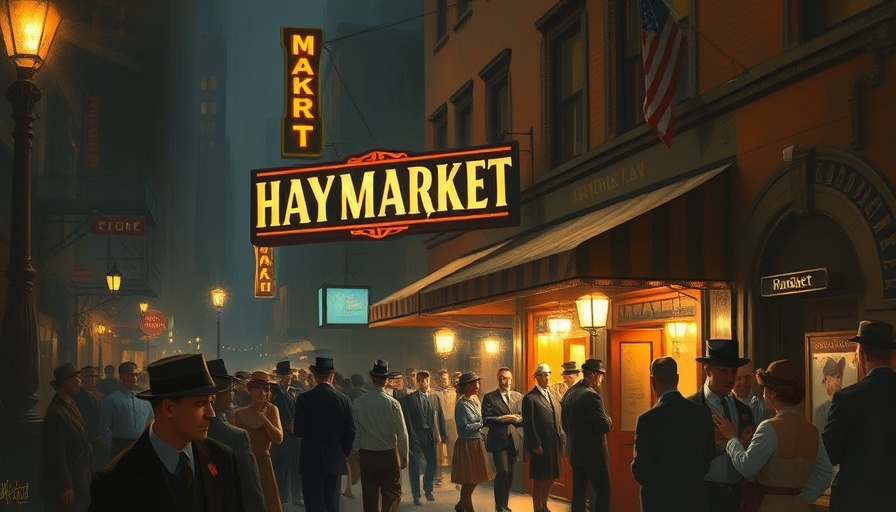
Revisiting New York's Exciting Past: The Haymarket
When we think of New York’s vibrant nightlife, the dazzling clubs of today often come to mind. However, centuries ago, the Haymarket came alive in the Tenderloin district, serving as a hub for the city's most daring escapades. Known as New York's equivalent of the Moulin Rouge, it was a haven for those seeking the thrill of debauchery amidst the stuffy Gilded Age propriety.
Scandalous Appeal of the Haymarket
Situated between 23rd and 42nd streets and 6th and 9th avenues, the Haymarket attracted patrons from all walks of life. While more reputable establishments basked in Broadway's glow, the Haymarket's enticing lights called to the adventurous souls eager to escape societal restrictions. It transformed from the Argyle Theatre into a dance hall in 1878, morphing into a preferred locale for men and women seeking both entertainment and illicit company.
The Allure of Dance and Decadence
Inside the Haymarket, high-kicking saloon girls graced the dance floor, and the presence of both male and female sex workers blurred the lines of legality. The cabaret thrived on its reputation: women drank for free and mingled with men who paid a cover charge to enjoy the festivities. Here, respectability and vice jostled uncomfortably close, giving rise to a unique cultural phenomenon in which societal norms were openly defied.
Legacy of Vice in a Changing City
Despite the shady dealings that occurred, the Haymarket was, at its core, a reflection of the changing social dynamics of late 19th-century New York. It represented a space where traditional morals collided violently with a burgeoning desire for personal freedom. Although labeled a dive, it emanated the kind of energy that could easily lure in a naive couple unaware of the nearby sins.
What We Can Learn from the Haymarket
The story of the Haymarket is not just one of scandal; it serves as a reminder of the duality found within urban life—an embrace of both culture and chaos. The relevance of such establishments in understanding the evolution of social norms is crucial for anyone examining the history of nightlife.
To truly appreciate the Gilded Age, one must explore local stories such as that of the Haymarket, which reflects the complexities of human desire and societal structure. This tantalizing narrative encourages deeper discussions about how far we've come and where we might be heading in today’s nightlife scene.
 Add Row
Add Row  Add Element
Add Element 



Write A Comment